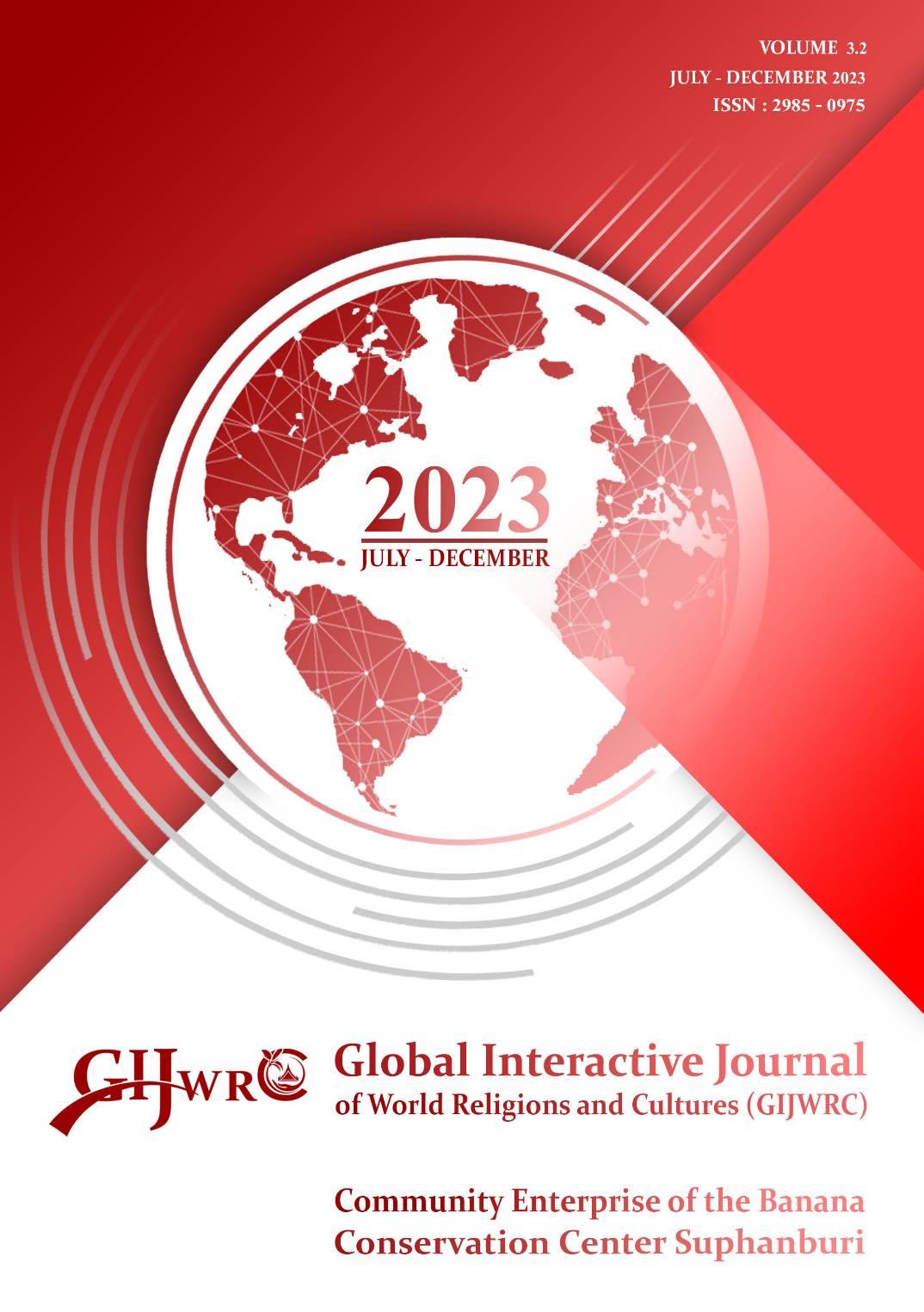A STATE AND THE CONDITION OF LIFE PHENOMENA
Main Article Content
Abstract
Abstract
This article aimed to study “A state and Condition of Life Phenomena” and found that humans were living beings that existed and existed in the world. There was a constant flow, which was the result of inherent nature, namely liberty, consciousness, intuition, and intellect, living within the framework of culture, society and law without any misrepresentation. At the level of thought and action was called responsibility. With courage and honesty so that human beings could create value and live on their own by facing nature with consciousness, intelligence and freedom to accept or to reject things as they really were by their own existence and well-being until able to live independently in the midst of a society and environment full of conflict and uncertainty by believing in yourself and responsibility for what they did as part of the human ideal of recognizing the inherent human freedom.
Article Details
References
Adisak Thongboon (1990). Handbook of Metaphysics. 2nd edition (1990) and 4th edition (2003). Bangkok: Royal Institute.
Admin. UKessays. Discussion on the Phrase 'Man is Condemned to be Free'. UKESSAYS.COM Online: (November 2018). Retrieved from https://www.ukessays.com/essays/philosophy/ man-is-condemned-to-be-free-philosophy-essay.php?vref=1 [published 23 September 2021].
Albert Camus (1955). The Myth of Sisyphus and Other Essays by Albert Camus. Translated by Justin O'brien. UK: Alfred A. Knopf. Inc. Renewed. Institute Journal, Vol. 30, Issue 4, October-December 1995. Bangkok: Common People.
Keerati Boonchuea (1979). Existential philosophy. Bangkok: Chulalongkorn University.
Komut Teepawatana (1987). Existential Philosophy. Bangkok: Smith.
Macombre. Edited by John Kulka. London: Yale University Press
Phra Thammakosajarn (Prayoon Dhammacitto) (2008). Comparison of Buddhadasa and Sartre concepts. 6th edition. Bangkok: Healthy mind.
Sartre, Jean-Paul (1943) “Being and Nothingness” in Jack Maden. “Existence Precedes Essence: What Sartre Really Meant.” Philosophy Break Online, retrieved 27 October 2023, from: https://philosophybreak.com/ articles/existence-precedes-essence-what-sartre-really-meant/ [August 2023]
Sartre, Jean-Paul (1947). Existentialism is a Humanism. Translated by Carol Macomber, Yale University Press / New Haven & London
Sartre, Jean-Paul (1957). Being and Nothingness. Translated by Hazal E. Branes. USA: University of Colorado.
Sartre, Jean-Paul (1959). The Transcendence of the Ego. Original and annotated with an introduction by Forrest and Robert Kirkpatric. New Yok: Noonday Press.
Sarutanon Raisaeng (2018). “Existentialist phenomena in the songs of Body slam artists”. Buddhamak Journal Dharma Studies Research Center Wat Awut Wiksitaram School, Year 3, Issue 2, July-December, 2018.
Somparn Phromta (1995). Human beings and the pursuit of truth and the
Sophie's World: An Imaginary Path to the History of Philosophy. 11th edition. Bangkok: Kobfai Printing Project.
Wittaya Setthawong. (1993). Sartre's Concept of Responsibility. Thesis for the degree of Doctor of Arts. Department of Philosophy. Graduate School, Chulalongkorn University.


